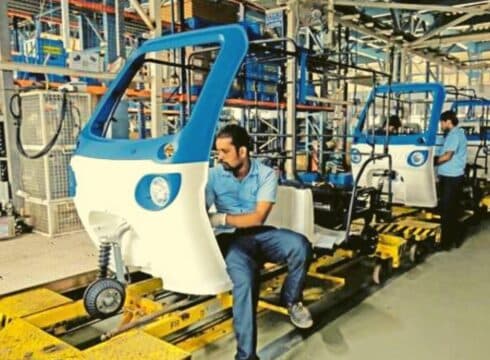India is a possible alternative to China
Indian leaders have woken up to the need to bring supply chains closer to home
The popularity of EVs is growing, and vendors are aware of this shift
Inc42 Daily Brief
Stay Ahead With Daily News & Analysis on India’s Tech & Startup Economy
The world is in the middle of a pandemic, unlike any it has faced in generations. The repercussions of this pandemic will be wide-reaching. The global order will be reshaped. Virtually every pundit believes that the world that will emerge on the other side of this pandemic will be markedly different than the world that existed before. They are right.
The Post-COVID-19 World
India will be one of the key players in this new order. One reason why is that leaders at the helm of billion and trillion-dollar businesses are strongly considering realigning their supply chains. They don’t want to be reliant on China, a country from where they are sure more pandemics will emerge. India is a possible alternative to China. It has vast technical expertise and relatively low labour costs. Hence there is a strong possibility that over the next few years, much that was manufactured in China will be made in India.
Also, Indian politicians have realised that dependence on foreign nations that are competitors is not a sound strategy for making the country self-reliant. The Indian economy is suffering because it relied on goods that originated in China. Reliance on supply chains that originated in China has made the pandemic’s impact on the economy worse than it would have been. Indian leaders agree that the country should manufacture much of the goods its citizens consume.
In short, Indian leaders have woken up to the need to bring supply chains closer to home. As supply chains become realigned, more products, including electric vehicles and their components will be manufactured domestically. While businesses are spearheading this realignment, the Government is playing a part as well.
Govt’s Actions To Make India Self-Reliant
The pandemic has highlighted that over-reliance on foreign supply chains makes the economy vulnerable to global shocks. The Government has taken the first step to incentivise companies to manufacture in India. The Indian government recently raised tariffs on lithium-ion batteries which are a vital component in electric vehicles. As a result of this tariff hike, importing these batteries from China has become costlier. Hence there is a powerful incentive for Indian manufacturers to develop these batteries in India.
Already, manufacturers in India are pouring more money into research and development to create lithium-ion batteries. Such companies have considerable expertise, and their efforts will bear fruit sooner rather than later. As a result, the cost of batteries used in electric vehicles will fall. Hence during the next five years, the EV industry will have access to high-quality batteries that cost less than those used today. This will give an impetus to the domestic EV industry.
Vendors Are Moving To India
There are other reasons why the electric vehicle industry in India will grow much more significantly by 2025. One reason is that consumers recognise the value of EVs. The popularity of EVs is growing, and vendors are aware of this shift. Consider that in 2013 and 2014, it was challenging for EV manufacturers to find Vendors who could deliver products of the specifications needed. Today countless Vendors in India can partner with EV manufacturers. As a result, there are more robust supply chains in India today than ever before. Over the next few years, these supply chains will grow deeper and more sophisticated.
One of the biggest beneficiaries of these deep supply chains will be the consumer. By 2025, EVs will be cheaper and more reliable than they are now. India, which is already one of the biggest markets in the world for two-wheelers, will be one of the global leaders in the EV two-wheeler segment. It’s estimated that by 2025, the size of the Indian EV industry will grow to approximately $600 million.
By 2025, on the back of deep domestic supply chains, and innovation, India will become a manufacturing hub for electric vehicles. Looking back from 2025, experts will see the Covid-19 pandemic as the catalyst that led to a shift in supply chains and government policies which precipitated the rise of the EV industry.
{{#name}}{{name}}{{/name}}{{^name}}-{{/name}}
{{#description}}{{description}}...{{/description}}{{^description}}-{{/description}}
Note: We at Inc42 take our ethics very seriously. More information about it can be found here.


